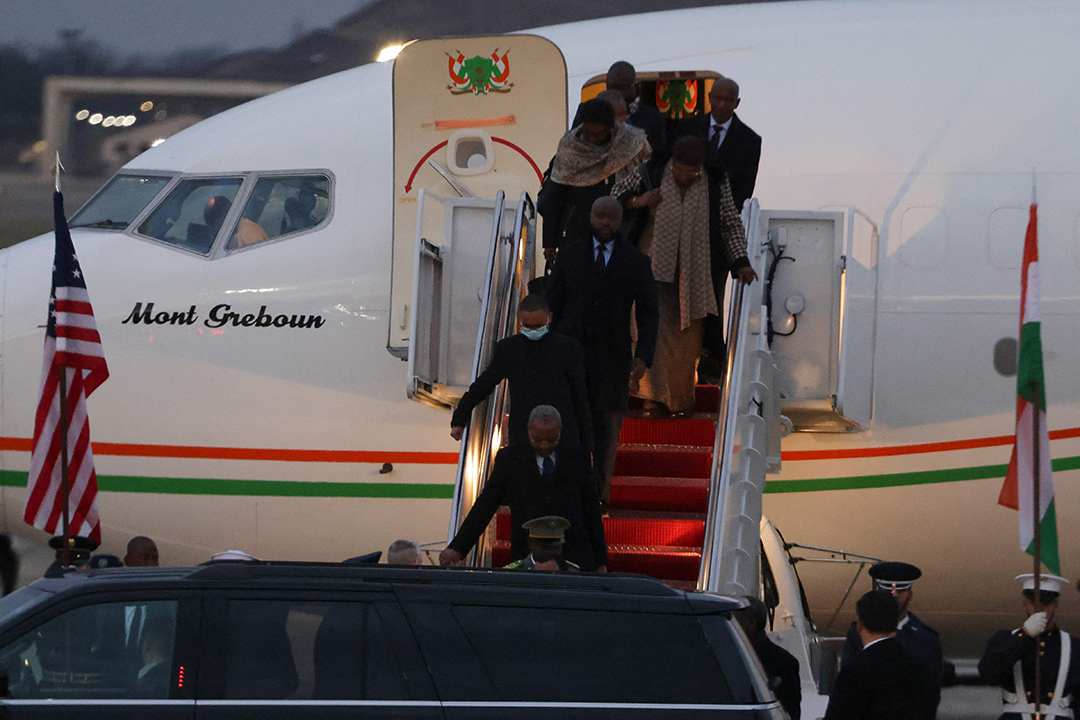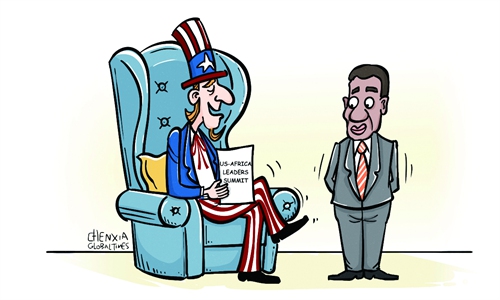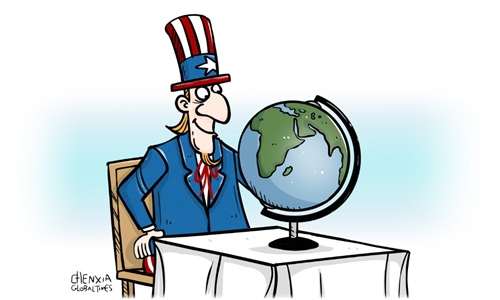
The delegation from Ethiopia arrives at Joint Base Andrews in Maryland on December 11, 2022, to attend the US-Africa Leaders Summit. The summit will take place in Washington, DC from December 13 to 15. Photo: VCG
Claiming to be closing a growing trust gap with Africa, US President Joe Biden will host 50 leaders from African countries and the African Union for a summit from Tuesday. However, observers say whether this event will meet the various demands for development of different African countries remains unclear, and no matter how many fancy words the US uses, the country still sees Africa as an arena to serve its strategic goal of competing with China.
Fifty African leaders will reportedly attend the three-day US-Africa Leaders Summit, which begins on Tuesday and will be the largest foreign meeting in Washington since the COVID-19 pandemic began. Former US president Barack Obama hosted the previous conference between US and African leaders eight years ago.
After announcing the event, Biden administration played down their concerns over China’s increasing influence in Africa. When asked about China, White House press secretary Karine Jean-Pierre said, “This summit is an opportunity to deepen many partnerships we have on the African continent.”
The US has been lambasted for not genuinely caring about African development as all of the country’s policies on the continent are predicated on how to defeat imaginary rivals in the region. To win over African leaders, the US agenda for this summit focused on food security, climate change, public health and infrastructure, with US officials attempting to avoid discussing China, Song Wei, professor with institute of international relations with the Beijing Foreign Studies University, told the Global Times.
However, whether the US is sincere in assisting African nations' development remains a question, as there are no precise plans for bilateral talks between Biden and African leaders, making it impossible for African countries to present their demands for development to the US, said Song.
According to the White House, Biden is set to deliver remarks at a US-Africa business forum, hold small group meetings with leaders, host a leaders’ dinner at the White House and take part in other sessions with leaders during the gathering. No details on bilateral meetings have been disclosed.
The US will also work hard to push the Partnership for Global Infrastructure and Investment (PGII) during the summit to compete with the eye-catching achievements on infrastructure construction made by joint efforts from China and Africa, analysts said.
To compete with China, the US has put forward its own proposals for infrastructural development in Africa, but has no edge in terms of funding and implementation, not to mention the fact that the US has not fulfilled its prior pledges of aid to Africa. Considering the enormous demand for infrastructure building, African countries expect little from the US, said Song.
After four years of former US president Donald Trump's "America First" foreign policy, Biden has spent most of his first two years in office attempting to alleviate world doubts about American leadership and is now paying more attention to Africa. For example, US Secretary of State Antony Blinken visited the continent in August and in the same month, the Biden administration unveiled its sub-Saharan African strategy.
Unlike earlier plans, the Sub-Saharan African strategy noted that Africa's votes are essential to US interests, indicating that while taking a competitive approach to global affairs, the US is seeking to bring Africa into its camp. Furthermore, its choice to support the African Union's membership in the G20 also has a strategic competitive purpose, since China, Indonesia, and many other developing nations have already voiced support, said Song.
The US' increasing interest in Africa is primarily motivated by its strategic objective of competing with China on a global scale. The country is also replicating China's cooperation mechanism with African leaders by organizing a similar US-Africa summit. However, African countries are finding it difficult to have any confidence in the US, given its disrespectful attitude toward the continent, Li Haidong, a professor at the Institute of International Relations at the China Foreign Affairs University, told the Global Times.
For example, Trump's racist remarks against several African countries in January 2018 sparked outrage and protests across the continent.
Biden is not Trump, but as a weak administration, it is unclear to what degree his administration’s African initiatives will be executed or continued. The inconsistency of US' policy toward Africa makes it more difficult to gain the trust of African leaders, Li said.
The US' current policies are protectionist, and it exploits resources across the world to boost its own prosperity. In light of this, how can African countries believe the US' promises? The expert asked. “And given what the US has done in Iraq, Afghanistan, and other parts of the world over the last 30 years, African leaders are wise enough not to be misled by the US,” he added.
Many African scholars have increasingly criticized the US for not truly caring about the continent's development, but only using it to serve its geopolitical strategy, and the purpose of this summit is not to make Africa better but to make the US better.



